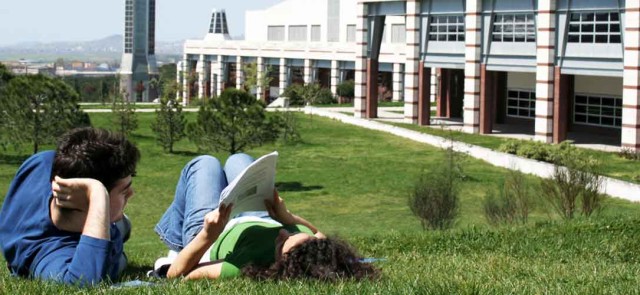CALL FOR PAPERS
MONOGRAPHIC: Pre-primary and primary Teacher Training and Education.
DEADLINE FOR THE RECEIPT OF ARTICLES: 01/09/2015 (articles must follow the Bordón rules and be sent via our OJS platform http://recyt.fecyt.es/index.php/BORDON/index).
INVITED EDITOR:
Dr. Miquel Martínez. Professor of Theory of Education. University of Barcelona
Queries via email: miquelmartinez@ub.edu
Education is a socially relevant subject, and teacher training one of its key factors. Today’s education systems are subject to intense pressures, both politically and from the media, which are increasing on a daily basis. Concern for educational indicators is expressed in far-reaching statistical exercises like PISA in the secondary education or the competences assessment in primary education, which are followed more in news sources than in schools and classrooms but which tend to produce certain anxiety in families and preoccupy politicians and education administrators alike.
We know that the concept of educational success cannot be reduced to that measured by these and other reports, and that neither should we confuse the results they measure with what the school actually manages to achieve. Nevertheless, the information such studies offer has considerable impact and generates opinion about the quality of a country’s education and the suitability of its teachers’ training.
Among many other factors, a quality education system depends on the level of training and preparation of its teachers, on their professional profile. A profile they attain progressively, over the years and through experience, and which is conditioned by the quality of their continuous training, how they reflect upon their professional practice and, without doubt, on the initial training they underwent during their study years.
Reports like 2013 TALIS, which brings together the opinions of 106,000 teachers of secondary education from 30 countries, shows that international tendencies are turning towards the profile of a professional able to work in a team, who embraces the new technologies and is open to subjecting his or her professional performance to the judgement of peers and the educational community. Cooperation, innovation and ethical commitment on the part of the teacher emerge as the core characteristics of the profile now being demanded by our advanced societies also in pre-primary and primary. Do our universities have models that promote the training of teachers with this profile? Do the systems of access to teaching encourage candidates to prepare themselves to undertake their professional tasks in the way currently required by society and relevant international studies?
Bordón wishes to centre this monographic on the training of pre-primary and primary teachers in our current context, on the role teachers play in today’s school and society and on the skills or capabilities they should demonstrate. It intends to highlight the orientation and content of studies that facilitate the exercise of teaching, while at the same time focusing on the criteria necessary to gain access to those studies and to the profession itself, on teachers’ salaries, their professional career, their prestige, and so on.
Through this edition’s monographic, Bordón wants to open a space for these subjects. And to this end we issue a call for articles that rigorously and critically address the following issues:
- How are primary teachers trained in countries economically and culturally close to ours (Spain)?
- What is the role of universities and pre-primary and primary schools in teachers’ training?
- Does the training of pre-primary and primary-school teachers really help build their professional identity? Does it prepare the future teacher to educate in values in plural and democratic societies?
- What criteria do other countries establish for student admission onto primary-school teacher-training courses?
- What architecture should characterise curricula for the training of primary-school teachers in Spain? A bachelor’s degree and master’s degree? First the bachelor’s degree and then specialised professional training in a master, or simultaneous training from the outset?
- In what conditions should the first years of teaching take place?
- Is the gender perspective sufficiently present in the training of pre-primary and primary teachers?
- Is the training in mathematics, sciences and technology that student teachers receive good enough to enable them to be competent in school and in the society of the knowledge economy and the technologies?
- Is teacher training sufficiently rich from an artistic and expressive point of view?
- Does the training of primary-school teachers include the learning and development of competencies for working with families, social agents and other professionals?
- What innovations and practices bring quality to training?
Bordón publishes articles about researches – not essays –in which the methodology and contributions should be clear. Bordón is looking for articles coming from researches and showing results based on evidence.
The authors should follow the rules of Bordón. Especially the length of the article and the summary, the IMRD (Introduction, Methodology, Results and Discussion) format and APA style, as well as the international and update references.
https://www.sepedagogia.es/?page_id=263&lang=en (guidelines for author)
https://www.sepedagogia.es/?page_id=222&lang=en (policy)
We hope that this edition will be of interest to specialists in teacher training, heads of training institutions, university professors and placement centre tutors, those responsible for education policy and all experts who, from related fields, have something to contribute in this area. We feel confident that the final result of the monographic will offer content that will be useful and of the academic and scientific quality that befits this journal.
2 comments
Trackback e pingback
No trackback or pingback available for this article







Trabajo en la formación continua para personal directivo. En México, la posición de director/directora de una escuela la ocupan profesores(as) que concursan para el puesto. Hago investigación con respecto al trabajo y a la formación continua de directores. ¿Es de interés para este número monográfico?
Tal y como se dice en el texto de la noticia, por favor, contacte con el Editor Invitado del monográfico, Dr. Miquel Martínez.